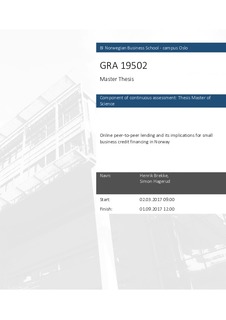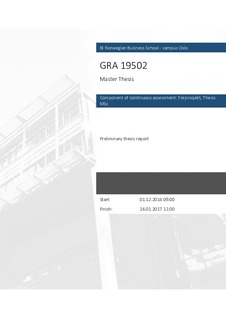| dc.description.abstract | This thesis seeks to explore how the emergence of online peer-to-peer (P2P)
lending will impact small businesses lending in Norway. Increasing attention has
been drawn to small businesses and their apparent struggle to obtain appropriate
credit financing. At the same time, online P2P lending, part of the new wave of
financial technologies, has been held up as a potential remedy for this credit
rationing. Our research involves two main parts. First, we study the extent to
which Norwegian small businesses experience a shortage of access to credit
financing. Second, we attempt to answer whether online P2P lending can improve
the current state of small business lending. To answer these questions we have
conducted in-depth interviews with different stakeholders related to the issue. We
also draw on literature that spans the fields of strategy, economics and innovation,
to shed light on why small businesses have difficulties in getting loans and
whether online P2P lending can be part of the solution.
Our findings suggest that small businesses have suffered from stricter capital
requirements imposed on financial services following the financial crisis, as well
as consolidation of local banks. Further, we find that online P2P lending can be
particularly useful to small businesses without the proper collateral for
securitization of loans, primarily because of different cost structures. However, we
also find that some of the value promised by the emerging lenders is of limited
value so far; such as expediency and innovative credit assessment. Our research
leads us to believe it is unlikely that online P2P lending will disrupt traditional
banks in the near future. Instead, the industry looks to evolve as a much-needed
supplement in the market for small business lending, specializing and catering to
their needs. | nb_NO |

